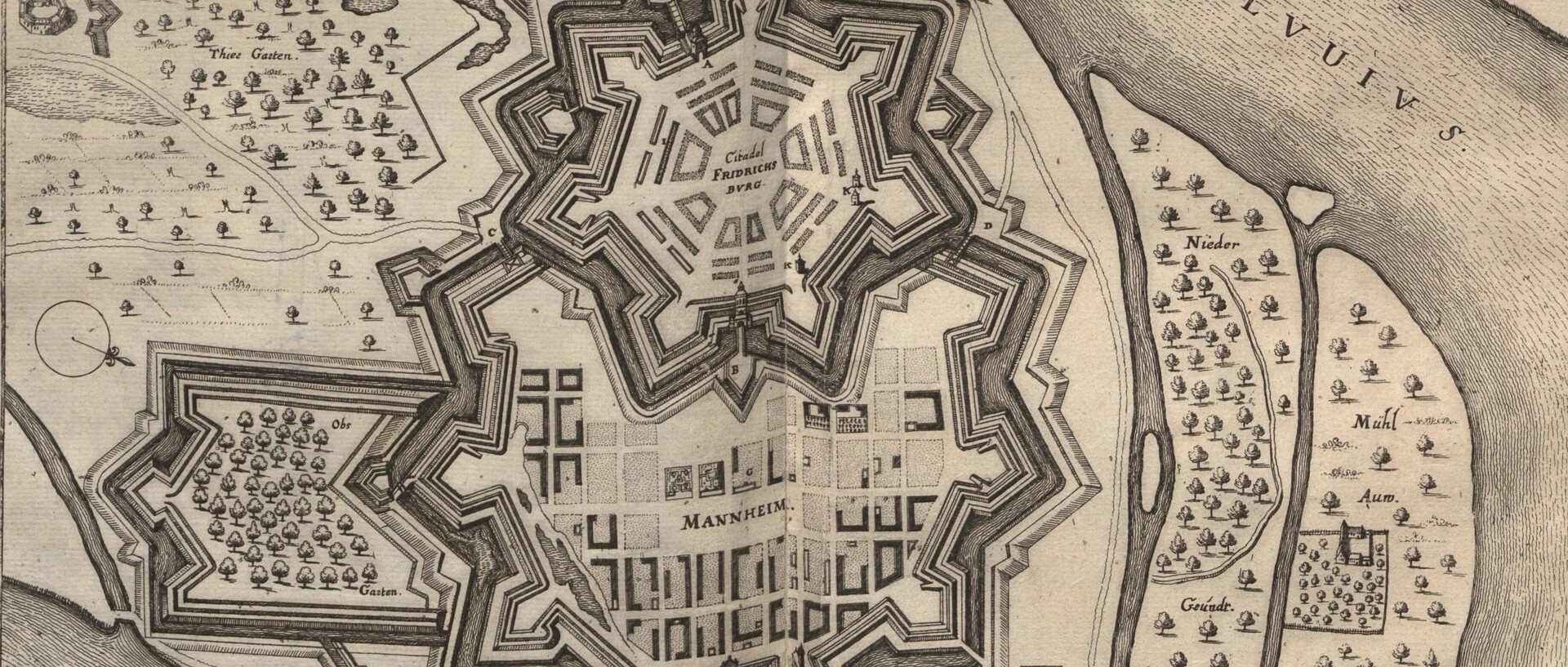Collections
Our special collections such as old prints and statistical yearbooks are also available in digital format.
Browse through our digital collections and through the history of the historical collection (in German).
Digitalization
The University Library does its best to digitize the relevant historical books and to make them also available in digital format. Before you order a book in the Primo catalog, please check if the book is available as digital object.
We digitize historical books in accordance with the latest standard and the recommendations of the German Research Foundation (DFG). If possible, we also create searchable text.
The digitized historical collections of the library of the University of Mannheim can be used without asking permission (Public Domain Mark 1.0).
Contact
Using old prints
You can order the historical books via the Primo catalog and access them in the special collections reading room in the InfoCenter. Due to conservation reasons, it is not possible to borrow historical books or to place an interlibrary loan request for such books.
Special rules apply to the use of historical books in the special reading area. Without prior consultation are generally prohibited:
- Bending open tightly bound books
- Inserting slips of paper or other objects
- Writing in and on the objects, tracing, rubbing through binding stamps
Bookends must be used for books with damaged or tightly bound bindings and for large and particularly heavy books. These are available at the special reading area in the University Library.
Historical books can generally be contaminated with substances such as mould, fine dust, heavy metals, bacteria and viruses. Dyes with arsenic compounds were used at times for the production of books and journals of the 19th century. Especially books with green bindings, edges, or endpapers published between 1800 and 1900 can possibly be contaminated with arsenic.
The different contaminants can be risks to health when breathed in or through contact with mouth or eyes. The University Library of Mannheim thus recommends the following general precautions when handling historical books:
- Wash your hands thouroughly with soap after using historical books.
- Don’t touch your face, eyes or mucosae during the use of historical books.
- Don’t wet your fingers with your tongue to turn pages and don’t smell the books.
In the library’s special collections reading room, one-way rubber gloves can be provided to you as a safety measure for working with historical books.
Please consult the library staff at the InfoCenter of the University Library for this.
Any questions?
For questions about the topic of special collections and their use at Mannheim University Library, the subject librarian for history is available to you.

Viktor Boecking, M.A.
University Library
Schloss Schneckenhof West – Room SW 284
68161 Mannheim

